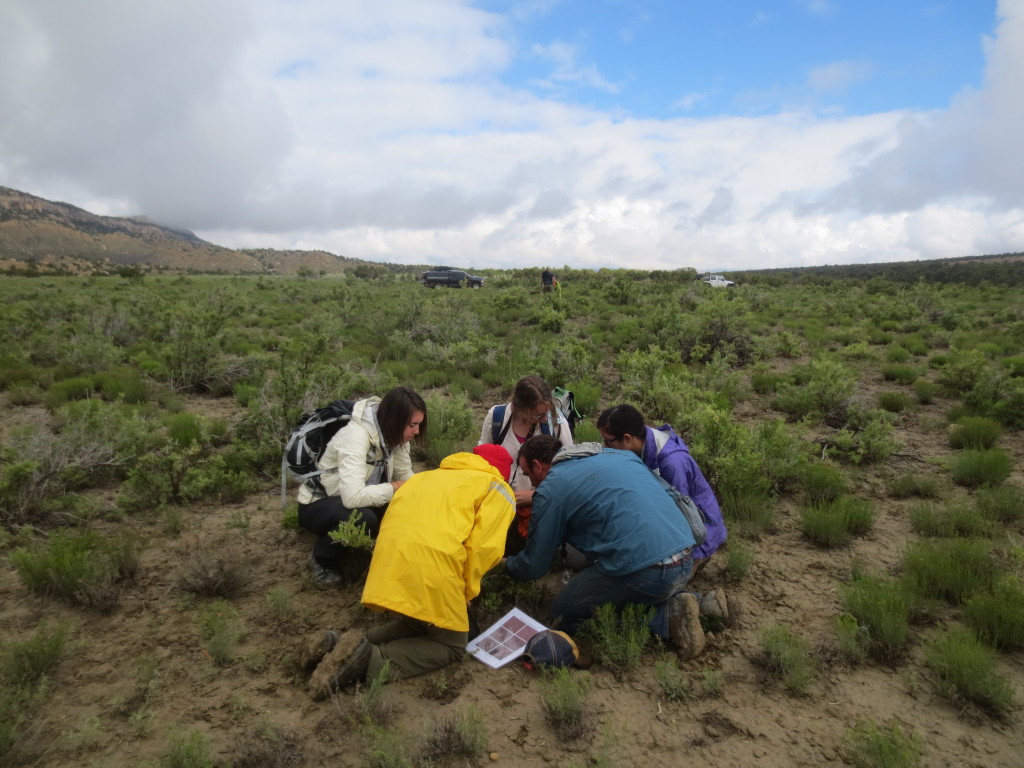The Colorado Plateau is an expansive region defined by its diverse scenic beauty and myriad land, water and wildlife management challenges—making it the ideal outdoor classroom for 18 environmental conservation scholars.
As one of five universities in the nation to offer a Doris Duke Conservation Scholars Program, Northern Arizona University hosts a cadre of select scholars from across the country. The students spend two years working closely with ecologists from the university’s Landscape Conservation Initiative to gain direct access to decision makers, researchers, ranchers and other stakeholders in order to experience conservation science and policy in action.
The program, which is funded through a grant by the Doris Duke Charitable Foundation, aims to broaden the field of conservation by preparing scholars from diverse backgrounds for careers in conservation. And its first set of scholars completed the program this month.
“We were so lucky in our first cohort of students in that they are open-hearted people who are really up for anything,” said Angie Moline, director of education at LCI. “And that’s been a good fit for our program because we basically take our students out in the field and throw hundreds of different ideas about conservation at them.”
Moline said the students remained open-minded about topics such as the way wildlife is managed on the Kaibab Plateau or the way water is allocated to reservations.
The scholars began the program two years ago as freshmen and sophomores and came from institutions throughout the country such as West Virginia State University and Pitzer College. For the first summer, they were based in Flagstaff and spent five weeks of the eight-week session rafting the Colorado River, visiting reservations and exploring the far reaches of the Colorado Plateau.
This immersion session was followed by a three-week internship with a conservation organization, either with an academic, non-profit or government agency. The internship focused on a science-based project with policy implications to expose the students to conservation decision-making.
For the second summer, scholars worked in teams of two or three on separate, nationwide research internships aligned with their interests. Weeklong winter workshops took place between summer sessions and focused on diversity and communication issues. Back at their home institutions during the academic year, students were connected with NAU program staff through monthly virtual meetings for vocational training and support.
Now, two years later, they are juniors and seniors. Aside from the enriching life experiences, they are leaving the program with many new skills—from geographic information systems, taxonomy and basic field skills to critical environmental communication skills.
“This program was the best experience of my life,” said Eva Malis, environmental science major at the University of California, Berkeley. “I have learned so much about the field I am passionate about, more than I could have ever learned in college courses. I have also learned so much about myself, what I want to do, and where I need to grow.”
Moline said one of the key features that attracts students to NAU’s program over others is its proximity to such a rich learning environment and its emphasis on the Southwest.
“Our program also has a really strong emphasis on exploring the field, exploring conservation issues in the field and being embedded in the Colorado Plateau community,” she said. “The other thing that is unique among all five programs is that Grand Canyon Trust and Conservation Science Partners are full partners in our program, and they’re both conservation non-profits.”
Moline added that students interested in working with non-governmental agencies after college benefit from connecting with staff from the non-profit partners.
Moline and others at LCI are now preparing to select a new group of 18-20 students for the upcoming two-year program, beginning in summer 2016. Interested students will answer three essay questions centered on conservation.
“We’re looking for students who can articulate their excitement and passion for conservation and for the idea of including more people into conservation in the future because that’s really the mission of the program.”
The deadline to submit an application is Monday, Feb. 8. For more information, click here.



